Pharmacovigilance – Drug Safety Monitoring
Pharmacovigilance is defined by the World Health Organization as the science and activity related to detecting, assessing, understanding, and preventing adverse effects and other medicine-related problems. Most reporting of adverse effects occurs after a drug is marketed. Pharmacovigilance is essential during the clinical trial and post-marketing, as adverse events often only become apparent after a drug enters clinical practice.
Pharmacovigilance Scope and Future in Australia
Current Status of Pharmaceutical Industry in Australia

Australia’s pharmaceutical market has grown from merely over $22.85 billion in 2016 to $25.2 billion by 2020. According to research and consulting firm Global Data, it is expected to witness a CAGR of 2.1% over the forecast period, 2022-2027, registering a compound annual growth rate (CAGR) of 2%. This means Australia is significantly contributing to the medicine industry, and drug safety monitoring is crucial to the industry’s growth.
Global Data suggests that Australia spends more than $122 billion annually on health, which is close to 10% of total spending on goods and services in the economy. Australian Drug Evaluation Committee was set up following the Thalidomide Tragedy in the world to review applications to market new drugs and therefore monitor the safety of the medicines. Australia was one of the top ten countries associated with the World Health Organization program for International Drug Monitoring. Health Care professionals are here educated enough to report any adverse drug reaction they come across directly. Therefore, Pharmacovigilance in Australia has a broader scope for skilled professionals to perform Pharmacovigilance duties on behalf of the Pharmaceutical Industries.
Therapeutic Goods Administration (TGA) – Australian Drug Regulatory Agency
The Therapeutic Goods Administration (TGA) is part of the Australian Government Department of Health regulatory agency. TGA expects Pharmaceutical Companies to have an adequate Pharmacovigilance system to ensure that medications available to Australian Patients are safe and effective. Health care professionals and consumers in Australia can voluntarily report drug safety issues. But safety reporting and Pharmacovigilance activities are mandatory for the manufacturers. The Therapeutic Goods Administration (TGA) collects and evaluates information related to the benefit-risk balance of medicines in Australia to monitor their safety and, where necessary, take appropriate action. TGA receives 25000 reports, with 54% coming from sponsors and 15% from state and territory health departments (reporting adverse events following immunization). All data reported to the TGA are entered into the Australian Adverse Drug Reactions Reporting System. The submitted data are shared with VigiBase, the World Health Organization’s international adverse drug events database. These databases are analyzed to detect signals which may identify previously unidentified safety problems and an increased frequency or severity of adverse events.
Australian reporting has led to the early recognition of adverse events. The Table highlights significant safety issues noted by the TGA since 2010 (freely available through the NPS MedicineWise module Reporting).
Table - Examples of adverse events reported to the Therapeutic Goods Administration
| Drug | Adverse Event |
|---|---|
| Risperidone | Cerebrovascular events in patients with dementia |
| Infliximab | Non-melanoma skin cancers (particular in psoriasis) |
| Methotrexate | Hepatitis B reactivation |
| Non-steroidal anti-inflammatory drugs (over-the-counter doses used for prolonged periods) | Cardiovascular events Diclofenac – hepatotoxicity |
| Metoclopramide | Extrapyramidal events and cardiac conduction – new recommendations for prevention |
| Pregabalin | Suicidal ideation |
| Zolpidem | Next day impairment |
| Duloxetine | Serotonin syndrome |
| Rotavirus vaccine | Intussusception |
| Denosumab | Severe hypocalcemia |
| Proton pump inhibitors | Acute interstitial nephritis |
| Clozapine | Constipation |
| Exenatide | Pancreatitis |
Reference from : nps.org.au
Australian Drug Regulatory Agency's Expectation:
TGA guidance sets out the pharmacovigilance responsibilities of sponsors of medicines included on the Australian Register of Therapeutic Goods (ARTG) and regulated by the TGA. Pharmaceutical companies are legally responsible for meeting pharmacovigilance reporting requirements for the medicine they expect. TGA expects every Pharmaceutical Company to have an effective pharmacovigilance system in place to:
- monitor and own responsibility for the safety of medicine.
- meet legislative requirements for reporting serious adverse reactions and significant safety issues.
- Identify any changes to the benefit-risk balance of your medicine.
- Take appropriate action promptly when necessary.
- Update product labels and product information (PI) with new safety information in a timely way.





